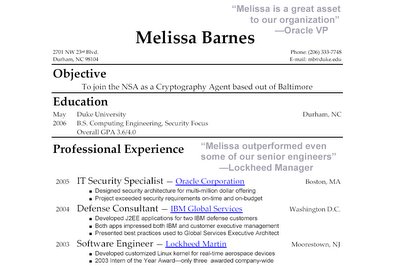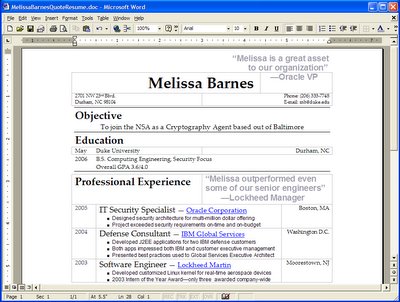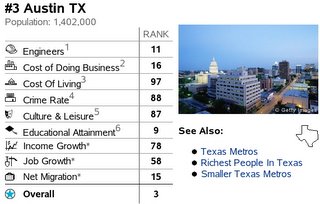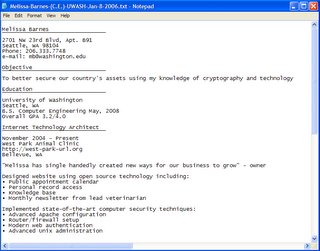Thank You Note After Last Job Interview
Thank you notes are sent the day of or the day after an interview. They are important for the following reasons:
- Thank you notes reinforce that you want the job. Few candidates realize how hard it is to find good help with limited resources and time. Hiring managers often are afraid that a strong candidate has too many competing job opportunities and often pick a candidate that they know is interested because of time constraints or because they can only afford to bring in a few candidates for a site interview. One of the exceptional new hires I interviewed for the book blew away his interviewers at Citrix, but was turned down because he proudly told them he was also interviewing at Lockheed, IBM, and a few other companies. If he had emphasized that he really was interested in Citrix over the other employers, he may have been sent to the next round.
- They can serve as a form of damage control. It happens to the best of us--you blank when they ask about their flagship product or perhaps you misunderstand a question. A follow-up note can serve as an opportunity to explain in carefully chosen words.
- A note can remind a hiring manager or HR representative to take action on your behalf. Perhaps it is not what your note says, but the fact that you are sending it that is beneficial. This is especially the case in large organizations where hiring managers have to jump through hoops to get everything together to hire someone. Your note may remind them to call HR that day or to call a superior to request a headcount.
Subject: ST321 Dev Position
Ms. Lynn:
Thank you very much for interviewing me today. With my prior work as a web developer at Raytheon and my security certifications, I think I would be a good fit.
Thanks again,
Jeff
This note is very generic and almost condescending. Why should Lynn care about Jeff's stated credentials? How can this benefit her organization? This is a far better note:
Subject: Thanks very much
Lynn,
My thanks to you and the rest of the team for taking the time to talk with me. I found our conversation about how competitive analysis has changed in the information age to be thought provoking. In fact I wrote a blog post about it (http://jeffsblog.com). I'm very excited about this position and your team. I hope I have the chance to work with you.
Sincerely,
Jeff
Why didn't Jeff try to sell himself in this letter? Emphasizing why your credentials are a strong fit for the organization's needs is never a bad idea. However, at the end of the interviewing process this should be clear to the interviewers (or your cover letter, resume, and interviews didn't serve you well). My recommendation is to focus on the fact that you want the job.
Should you send it via email (as suggested by the subject lines above) or write a note via conventional mail? Time can be critical--hiring decisions are often made quickly. A hand-written note can better distinguish you, but only if you can ensure that it will be in the hiring manager's hands by the next day. For example, if you are still in town or the position is local, you may want to drop it off at the office lobby the next morning.
Another choice is simply to call and say thanks. The effectiveness of a call is highly dependent on how strong of a relationship you've built with the hiring manager and whether you are more comfortable saying thanks verbally. Also, there is no reason you can't do both.











